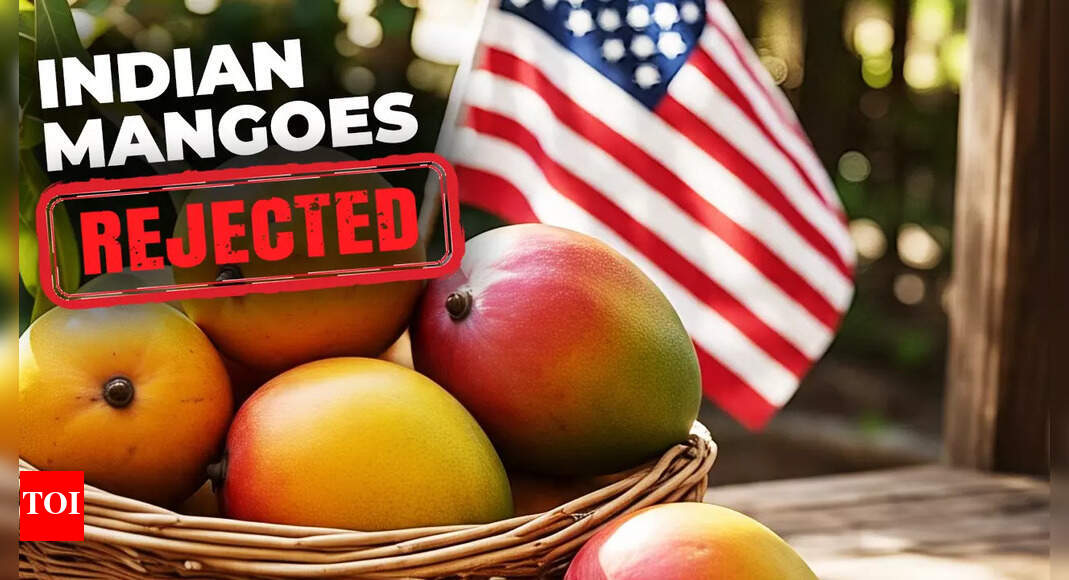Massive Mango Export Dispute: India Accuses US of Protocol Violations After 15 Shipments Rejected!
Mango Mayhem: India’s Export Challenges Amid U.S. Rejections
The vibrant allure of Indian mangoes, renowned globally for their rich flavor and aroma, faces an unexpected hurdle in their journey to U.S. shores. The recent rejection of fifteen mango consignments has sparked a significant uproar, impacting exporters and igniting discussions on adherence to export protocols.
U.S. Rejection Shocks Mango Exporters
India’s mango exports have taken a hit, with reports highlighting the destruction of fruit valued at approximately $500,000. This setback follows the rejection of shipments by U.S. inspectors who cited procedural issues. Among the affected varieties are the famed Alphonso, Kesar, and Himayat mangoes, which had recently gained access to the lucrative U.S. market following rigorous compliance with phytosanitary regulations.
Maharashtra State Agricultural Marketing Board (MSAMB), which oversees an irradiation facility crucial for treating mangoes before export, has voiced its concerns regarding the rejection. They allege that U.S. inspectors did not follow standard protocol when flagging the consignments, bypassing essential communication channels by failing to notify facility officials before escalating the issue.
The Importance of Protocol Compliance
The rejections underscore the critical role of procedural compliance in international trade. The USDA’s Animal and Plant Health Inspection Service (APHIS) oversees the import of mangoes to ensure they meet stringent health and safety standards. This process involves:
- Sourcing: Mangoes are harvested from registered farms that comply with USDA regulations.
- Processing: The fruit undergoes a hot water fungicide treatment and is then irradiated to eliminate pests.
- Inspection: This procedure is monitored by USDA-appointed officers to ensure adherence to export protocols.
Without stringent compliance, the repercussions can be severe, as witnessed in this recent debacle. Officials from MSAMB noted that the infractions could have been avoided if U.S. inspectors had raised concerns directly with their team instead of reporting to their superiors without the necessary discussions.
The Financial Fallout
The financial impact of these rejections is substantial, particularly for the exporters involved. With estimates of potential losses reaching half a million dollars, this incident has stoked fears about the stability of the mango export market. Recent data indicated a promising rise in Indian mango exports to the U.S., with figures jumping from $4.36 million in 2022-23 to $10 million in FY24, showing a remarkable 130% increase.
However, this growth is now marred by potential market instability, raising questions about the future of Indian mango exports. Senior officials are concerned that the negative publicity surrounding this rejection could affect consumer confidence and trade relationships.
Resuming Export Operations
Despite the recent setback, the MSAMB confirmed that operations at the Mumbai irradiation facility resumed normal functionality shortly after the incident. Between May 11 and May 18, they managed to ship 185.75 metric tonnes of mangoes to the U.S., comprising 53,072 boxes across 39 consignments.
This positive turnaround reflects the resilience and commitment of Indian exporters to overcome adversity. However, industry insiders remain cautious, urging adherence to protocols and enhanced communication with U.S. agencies to prevent further disruptions.
Looking Ahead: Ensuring Smooth Sailing for Exports
To secure the future of mango exports to the U.S. and beyond, several steps must be prioritized:
- Enhanced Communication: Establishing direct lines of communication between Indian exporters and U.S. inspectors can help preempt potential issues.
- Training and Awareness: Regular training sessions focusing on protocol adherence for both Indian exporters and U.S. inspectors can reduce misunderstandings and compliance issues.
- Strengthened Infrastructure: Continued investment in export infrastructure and treatment facilities will fortify the mango supply chain.
As the Indian mango export industry navigates these challenges, collaboration and diligence from all stakeholders will be essential to ensure that the export of this beloved fruit continues to flourish.
In conclusion, while the shock of the recent U.S. rejections has sent ripples across India’s mango export sector, a proactive approach toward compliance, communication, and operational excellence could pave the way for brighter days ahead for this cherished fruit on the global stage.





